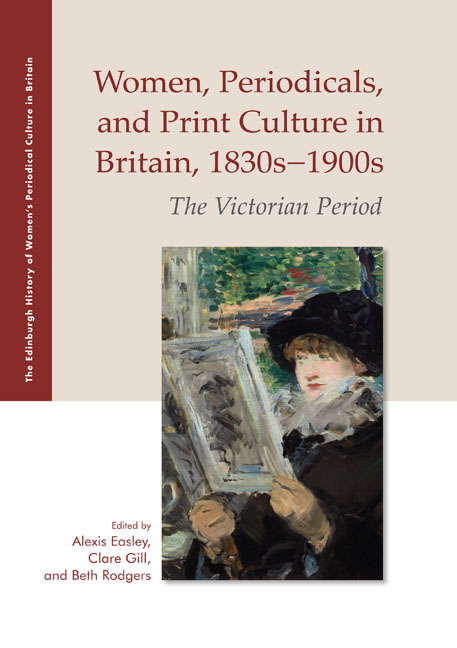1 results in Edinburgh History of Women's Periodical Culture

Women, Periodicals and Print Culture in Britain, 1830s–1900s
- The Victorian Period
-
- Published by:
- Edinburgh University Press
- Published online:
- 25 October 2019
- Print publication:
- 03 April 2019

